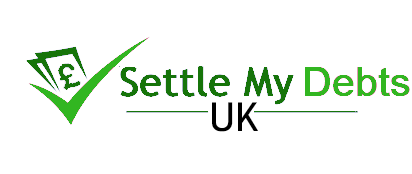Too Much Debt? Let Us Help You Eliminate Your Debt

Frequently Asked Questions
How a Debt Management Plan works?
A Debt Management Plan (DMP) allows you to pay off your debts at a rate you can afford.
It’s suitable if you have non-priority debts like credit or store cards, overdrafts and personal loans.
Your DMP provider will help you work out an affordable payment and talk to your creditors.
You make one monthly payment to the DMP provider who then pays your creditors for you.
Which debts can’t I pay off with a Debt Management Plan?
You can’t use a Debt Management Plan to pay off priority debts.
These include:
- Council Tax
- gas and electricity bills
- child support and maintenance
- Income Tax, National Insurance and VAT
- mortgage, rent and any loans secured against your home
What documents are required from me?
The information we collect from you to establish your financial circumstance will need to be proven when negotiating with your creditors. You will need to provide certain documents upon our request, like pay slips and utility bills.
What is bankruptcy?
Bankruptcy is a rather severe form of insolvency that should be treated as a last resort. It is essentially a declaration that you are unable to pay back all of your existing unsecured debts (i.e. debts that are not secured against any of your assets such as credit card debts, rather than something like a mortgage that is secured against your home).
Bankruptcy can be declared voluntarily, or you can be forced to declare bankruptcy by a particularly aggressive creditor (or creditors).
Once bankruptcy has been declared, responsibility of your relevant assets, as well as the responsibility of communication with your creditors, will be taken on by a trustee; either an official receiver or an insolvency practitioner.
Which debts can I pay off with a Debt Management Plan?
You can only use a Debt Management Plan for non-priority debts.
These include:
- overdrafts
- personal loans
- bank or building society loans
- money borrowed from friends or family
- credit card, store card debts or payday loans
- catalogue, home credit or in-store credit debts.
Who offers Debt Management Plans?
Many free debt advice organisations can arrange a Debt Management Plan to ensure that all the money you pay into it goes towards paying off your debts.This means you could be debt free sooner than you’d hoped.
Free debt advisors give expert advice to hundreds of thousands of people every year and will understand the situation you are in.
They are highly trained and will be able to give you the support you need to manage and reduce your debts.
What is an individual voluntary arrangement (IVA)?
An individual voluntary arrangement, or IVA, is a form of insolvency that amounts to a legally binding agreement between you and your creditors, via an insolvency practitioner, involving a set repayment plan.
An IVA involves settling as much as possible of your unsecured debt by extending the payment term, and reducing the monthly payments.
You agree an amount to pay each month, which is then divided up among your creditors.
Each IVA case will be managed by an insolvency practitioner, whose responsibility it is to help work out the exact payment plan, to manage the distribution of the payments themselves and to take charge of any liaison with your creditors. Once the IVA is in place, your creditors are no longer permitted to contact you or harass you regarding your payments.
I can no longer afford to make my IVA payments, what should I do?
If your financial situation changes while your IVA is still active and as a result, you find yourself no longer able to keep up with your agreed monthly payments, the first thing you should do is to contact your insolvency practitioner.
They will suggest to you a course of action that will be based partly on the reasons for your inability to continue to pay. You may be able to arrange a temporary reduction in your payment plan while you work to get back on your feet.
Alternatively, in the most severe of cases, you will be able to cancel your IVA altogether. Bear in mind though that if you do choose this option, then you will most likely find that the only thing you have left to do to cope with your debt problems is declaring bankruptcy, and so it is not a decision to be taken lightly.
